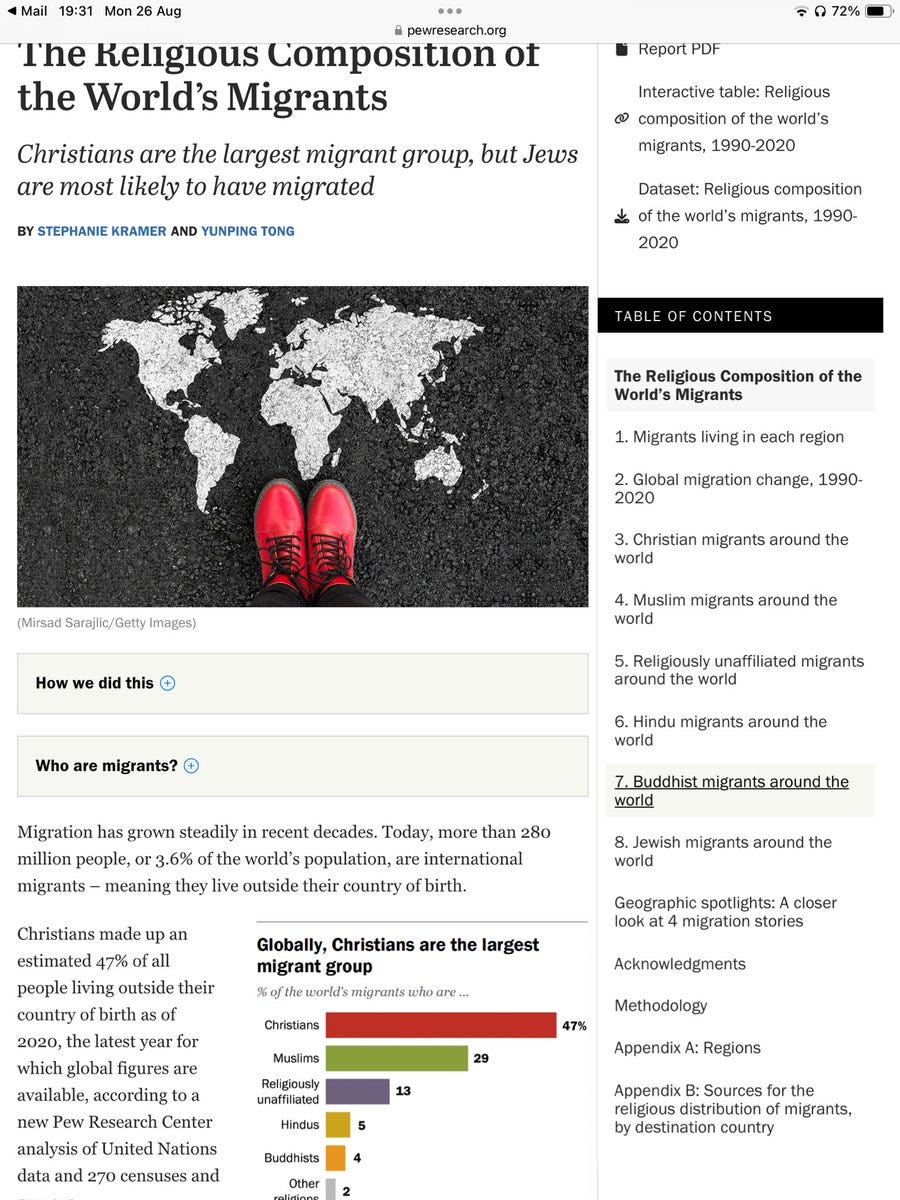Britain’s Demographic Conundrum: More migration versus falling fertility
Britain has a demographic conundrum. Too many people dislike migration. Yet fertility and population rates are falling. There are more older people and increasingly insufficient young people to sustai
An article in the FT last week went through some of data across the world that shows a global demographic problem. They say: "The decline in birth rates is a universal problem — no continent has been left unscathed. ⅔ of the world’s population now lives in countries where people are having babies at a rate too low to replace their population."
They describe how different countries have unsuccessfully used incentives to encourage an increase in birthrates. Once a culture is established, it’s hard to change it.
“The issue of population ageing presents multiple challenges for Europe,” said Olli Rehn, governor of the Finnish central bank. “First, the worsening dependency ratio is putting significant pressure on public finances. Second, an ageing society tends to be less economically dynamic and less entrepreneurial.”
This is a problem that is affected by social attitudes, social values and economics.
Proposed “solutions” like raising pension ages to sustain workforce numbers are deeply unpopular. Some people might think that technology will be the solution - but I think that’s overoptimistic.
"Britain needs immigrants. According to the ONS this week, Britain’s “indigenous” population in the 2030s will be static & ageing. Growth in population will be buoyed only by immigrants.” Simon Jenkins
The discussion in Britain is confused between economics, xenophobia, asylum obligations, and legal versus illegal migration. The issue has become so politically toxic that most politicians will not admit to the fact that Britain needs migrant workers.
Contrary to xenophobic propaganda & despite conflicts like Iraq/Afghanistan only 6% of Muslims worldwide migrate - constituting < 30% of all migrants. And when they do migrate the vast majority do so to other Muslim countries.
Sadly negative attitudes and policies can be the same in Muslim countries. Pakistan has accelerated deportations of people of Afghani origin in recent years. Erdogan’s assisted regime-change in Syria has in part been driven by negative attitudes towards Syrian refugees.
I wrote an article about the issue of immigration some months ago.
Islam has a very different attitude to migration. The Prophet ﷺ migrated from his home town of Makkah to Al Madinah with one hundred or so companions - known famously as Al Muhājirūn - a title of respect literally meaning “the Immigrants”. When he ﷺ arrived, he paired a Muhājir (Immigrant) with an established resident of Al Madinah - know as the Ansār (or “Helpers”). The latter were expected to share their wealth and lives with the newcomers, as a bond of brotherhood, until they were successfully established to maintain themselves.
He ﷺ also encouraged people to have more children, so that his ﷺUmmah would be the largest.
Furthermore the role of the nuclear & extended family in Islamic societies is such that it is the first support network for childcare, parental/grandparental care, and economic support for those who are genuinely hard-up. However, much of that is disintegrating due to economic migration in the modern world.
abdulwahid101010.substack.com/p/the-immigrat…
(This article was originally a thread on X).
Abdul Wahid has been active in Muslim affairs in the UK for over 25 years. He has been published on the websites of Foreign Policy, Open Democracy, the Times Higher Educational Supplement, and Prospect Magazine. You can follow him on X/Twitter @AbdulWahid_X.












